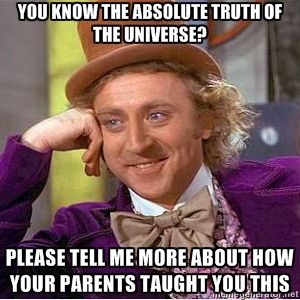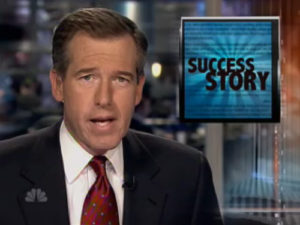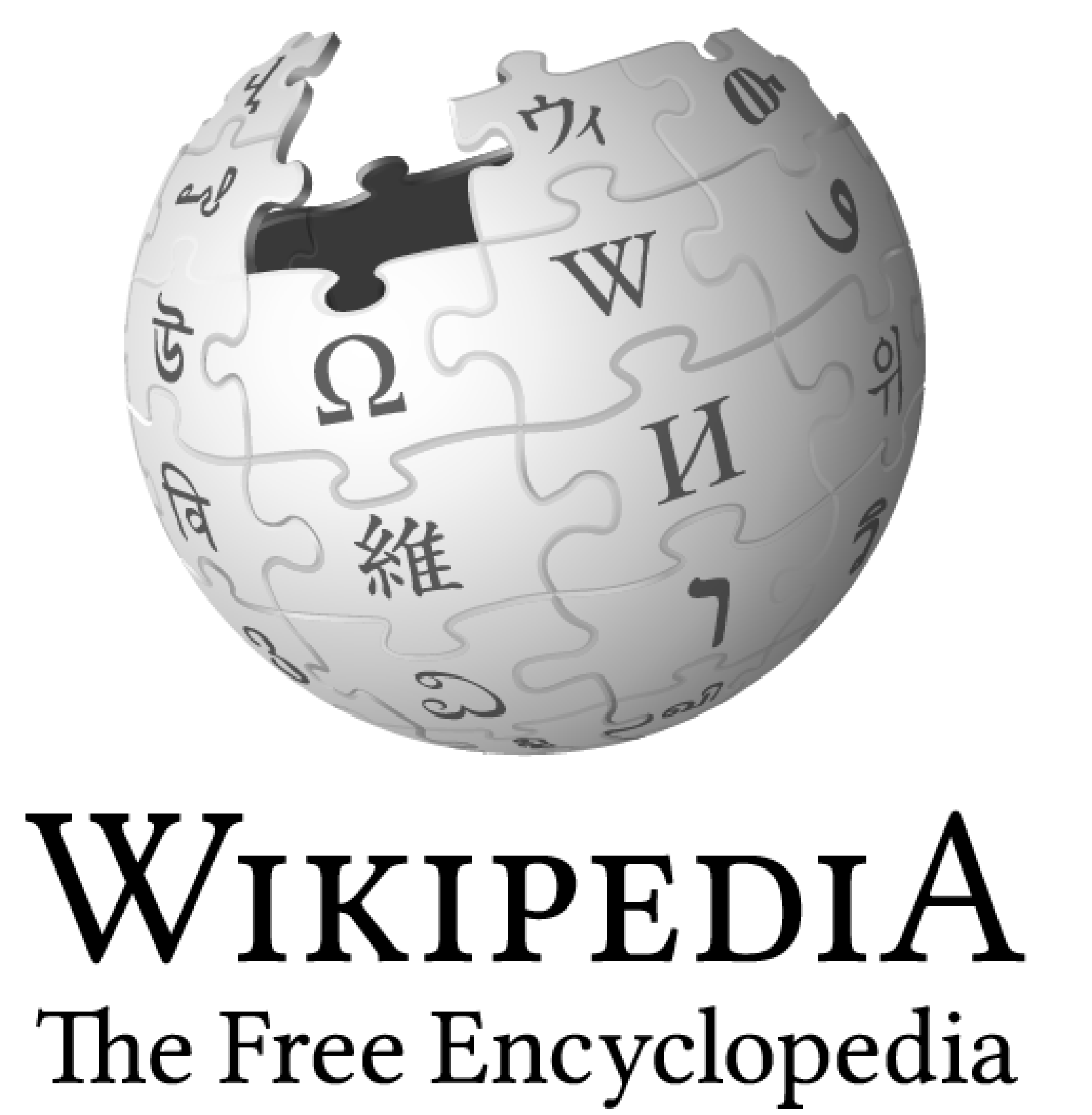As we’ve seen, Wikipedia is working with the newly emerging approach to human knowledge. In the new world, transparency creates credibility. We all know humans get stuff wrong. Acknowledging it up front better reflects the way the world really is.
Also, we’ve seen, human knowledge is always changing. Consequently, it is sought best in collaboration. We are communal beings whose understanding of truth really is ambiguous, temporary, rambling, and argued. “Knowing” is a temporary reality at best.
Wikipedia gets this. Britannica does not.
 So far, the Christian Church hasn’t yet gotten this. The Church is still rooted in the one-and-true version of absolute knowledge; convinced that it exists; convinced that we have it!
So far, the Christian Church hasn’t yet gotten this. The Church is still rooted in the one-and-true version of absolute knowledge; convinced that it exists; convinced that we have it!
Thus convinced, the Church has long been owned by experts with an inside track on keeping and distributing it. The authors of the creeds, the theologians who interpret the scriptures, the bishops who guard the truth; are all experts working within the old way of understanding knowledge.
There is little sense in the Christian Church, that we best find and experience knowledge when we do so in an interconnected web of relationship. We have little sense that we best find and experience knowledge when we don’t outsource it to a group of semi-infallible experts. We have little instinct that we ought to be hammering our knowledge out in the broad context of lots and lots of people; lots and lots of differing perspectives.
 The internet is changing how people create human knowledge.
The internet is changing how people create human knowledge.
Consider this. A top-down information outlet like the NBC Nightly News will do a six minute story. Within minutes, the blogosphere might have 6000 pages expanding on the story. Knowledge will be broadened, added to, seen from a thousand different angles. What results will be broader, deeper, and more unedited than it ever was under the old system.
Like it or not; this is the way things have become.
But the Church is decidedly behind the curve on this one.
 We Christians have a difficult time in a world where truth exists as an interconnected ecosystem. Our top-down view of God makes it very difficult to work with the new reality that has come upon us.
We Christians have a difficult time in a world where truth exists as an interconnected ecosystem. Our top-down view of God makes it very difficult to work with the new reality that has come upon us.
In the old way of experiencing knowledge, the really smart, informed, insider person was at the top. But the internet is helping us see that the whole group is almost always smarter than the individual. Broad participation evokes perspectives and understandings that trump the singular expert, no matter how smart he or she is.
We are coming to see that the context in which knowledge is sought and experienced trumps the content any one expert can contain. This is the legacy the internet is giving us.
The Church needs to catch up!
